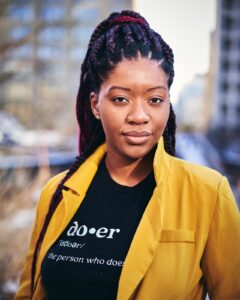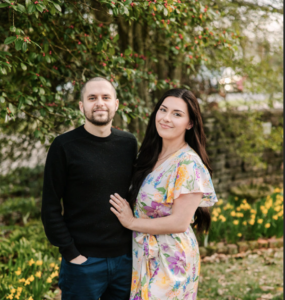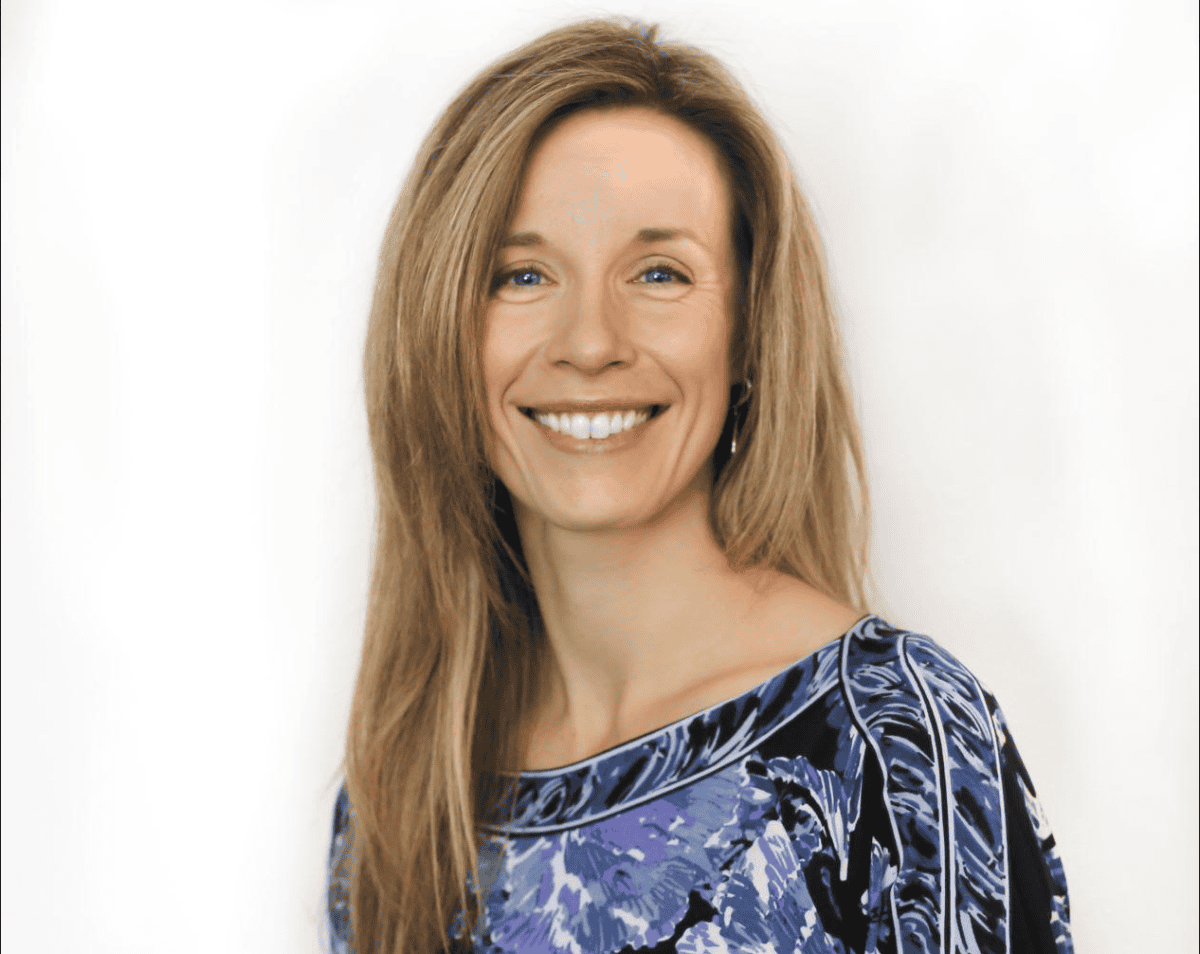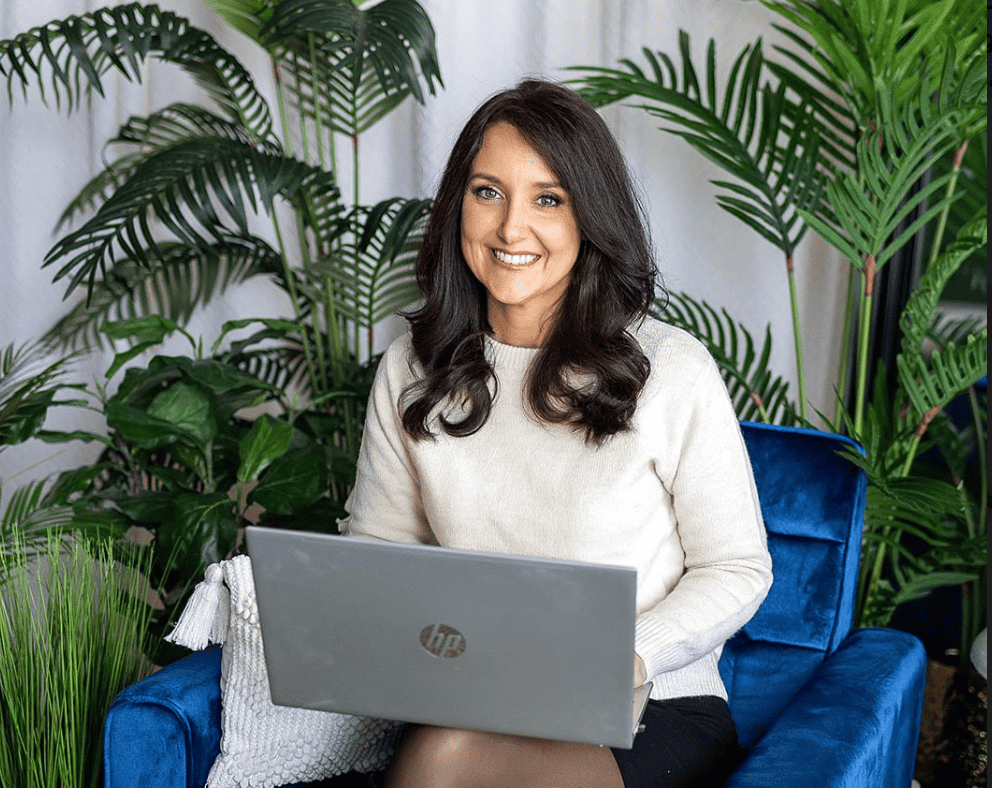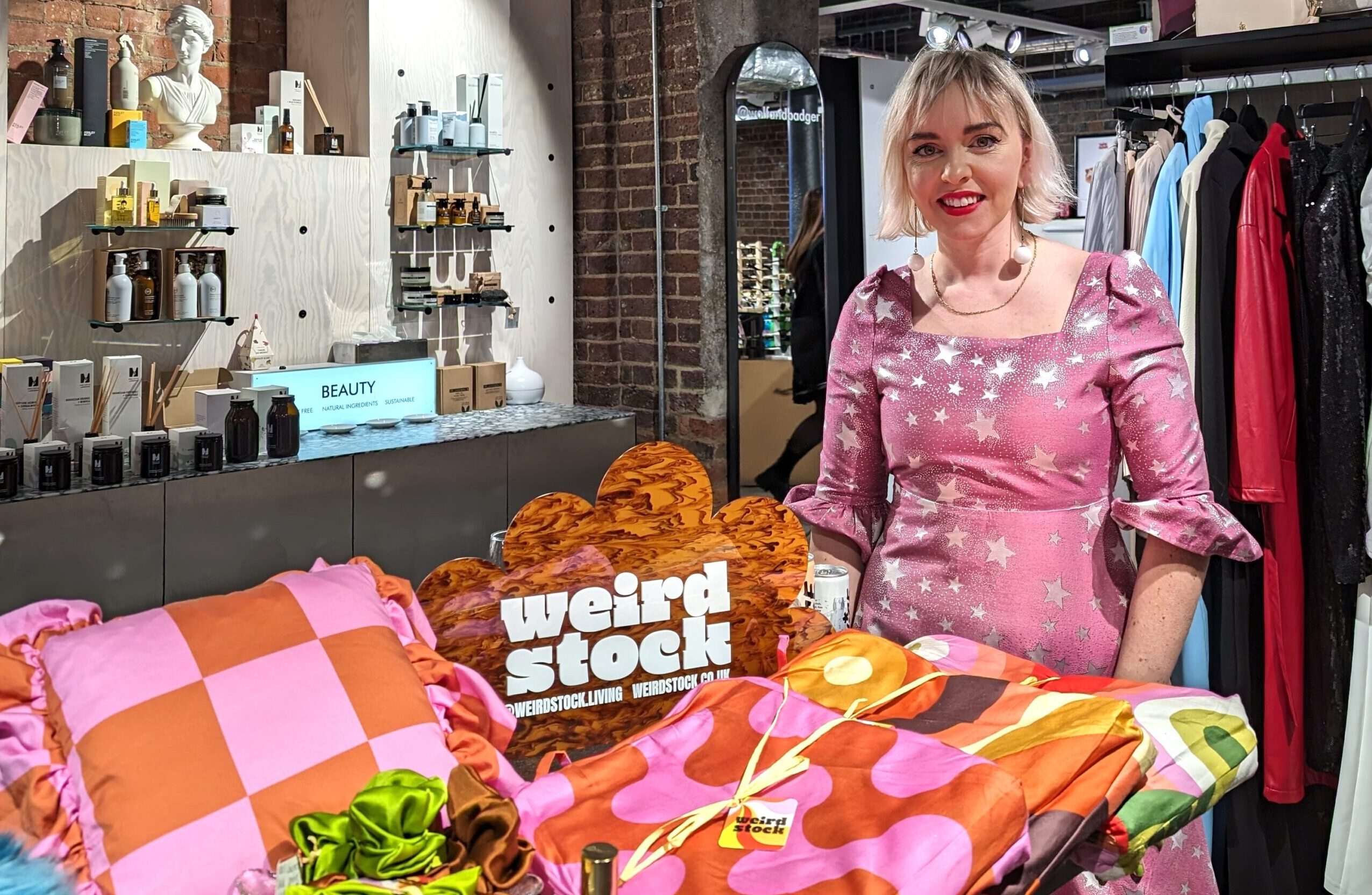In a world often defined by rigid norms and limited representation, Kink In Kolor emerges as a transformative force, bridging marginalized communities with alternative subcultures through art, advocacy, and unapologetic authenticity. Founded by PJ, a visionary leader whose identity as a neurodivergent, Black, Latine, queer, and kinky womxn informs every aspect of the initiative, Kink In Kolor creates safe, inclusive spaces where individuals can exist authentically, free from judgment or societal constraints. In this candid interview, the founder shares her journey, the inspiration behind the project, and the triumphs and challenges of fostering understanding and connection in often-misunderstood spaces. From redefining love and relationships to amplifying the voices of the underrepresented, Kink In Kolor is a bold statement that celebrates diversity and the freedom to live fully.
What inspired you to create Kink In Kolor, and how did you first envision bridging the gap between marginalized communities and alt subcultures?
I was inspired by my friends! I’m a part of quite a few different communities and pretty open about my lifestyle so it kind of naturally melded together. I’m incredibly fortunate to be able to create a community in that way and if I can do it on a small scale I figured I could do it on a bigger scale. I already roll to my own beat and my friends love an adventure so they hopped along for the ride…whether they were apart of these communities or not (and if they are not, they come correct and have done the work). We can be different and coexist, but we need a place to meet each other halfway and Kink in Kolor is helping make that happen in small but tangible ways.
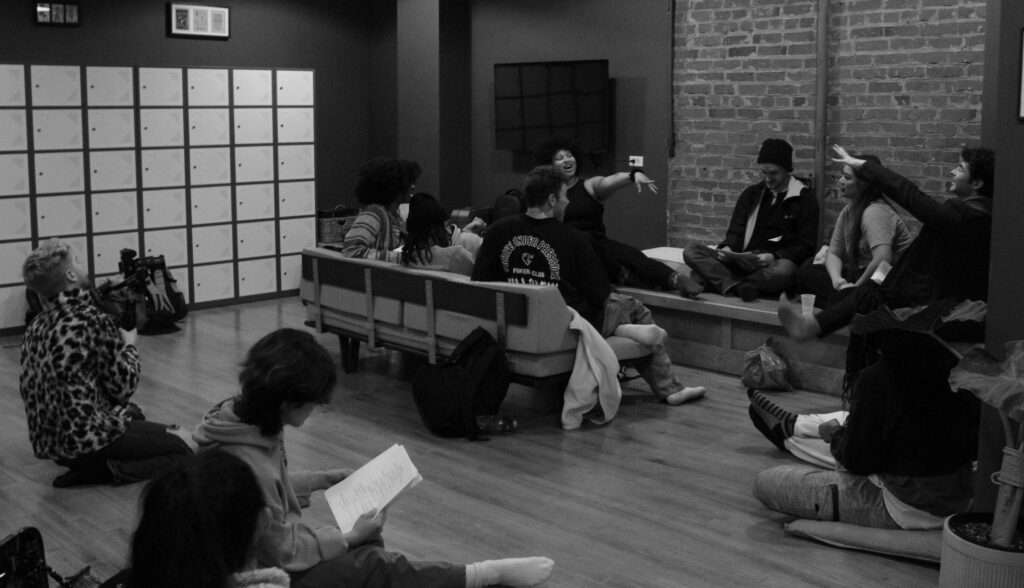
Can you share a bit about your personal journey that led you to start this project? How has your identity influenced the direction of Kink In Kolor?
I was influenced by my experience, what I saw in person, what I was reading online and the discourse on the socials. There is just so much going on in life and in the world that people are looking for places to rest. Rest without fear, without judgment and with people they don’t have to code switch for or explain things to. When people see folx who are melanated, queer/lgbt+, or disabled they have an idea of what that looks like and that’s not always synonymous with the reality (theirs or otherwise).When people see these folx living in ways that are against the norm (like co parenting without romance, or being poly, or being active in BDSM or kink) they start to police it, redline it, price people out, or restrict access in ways that hurt everyone. I didn’t like that because experiences are valid too and life is already hard enough. We can love who we want and show that how we want too.There are cultures and communities outside of America that have lived openly and completely without our same social constructs and it’s glorious. Don’t put us in a box and don’t knock our circles if you don’t rock with it. It’s ok to let people exist authentically and I will always rock with that.
What are some of the unique challenges you’ve faced as a neurodivergent, Black, Latine, queer, and kinky womxn in leading this initiative?
Life was (and still is) hard to navigate for a lot of us. We’re not afforded the same access or opportunities and we are busting our asses off just to make ends meet. Being a person that falls under all those categories is taxing when creating something new because it’s a fight most of the way. I don’t understand certain cues, and my mind works differently. My skin is what people will always see first, my perceived gender identity and so on. I will always get asked to do 2 times as much to prove myself even when I have all of my ducks in a row. Sometimes people don’t take me seriously even when I’m dead serious. It can also be difficult to navigate who is truly for me and what i’m doing. When our identities precede us before our skill, some people don’t take the time to see past that. Coupled with also having an unknown physical diagnosis that affects so much of my day to day, It’s a lot.
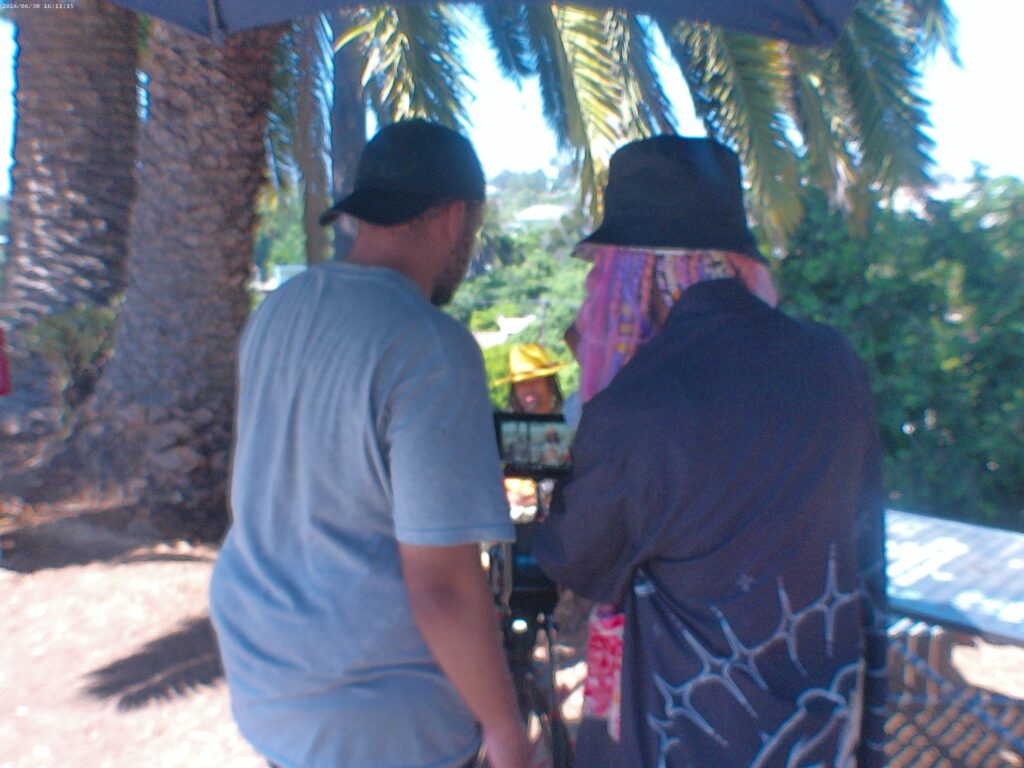
How do you navigate the difficulties of explaining your vision to those who may not fully understand or resonate with the concept of Kink In Kolor?
I make it relatable and in some rare cases I may make it a teachable moment. I created books and workbooks for those who are curious about alternative lifestyles. I curate unconventional events to show the beauty of these lifestyles unfiltered. It’s not easy and not everyone rocks with it, but the more people see the more it can hopefully become less taboo. I also make it a point to call out people and companies that make blanket statements about folx who are in these spaces because of their lack of understanding though. It’s boggling when people say things with their full chest and don’t have a clue what it means.
Accessing funding can be tough, especially in niche markets. How have you managed to overcome or cope with these financial challenges?
It takes a lot of fine tuning the details and focusing on the overarching idea. My company helps people connect with others in an unbiased and real way, it helps them learn things about themselves and others in real time and it’s all through entertainment and accessible resources. With that being said I do hear a lot of no’s because of the niche, because of my identities, because of the state of the world. Honestly a lot of companies don’t want to take the risk and when they do it’s not usually on something new. We’re misfits that challenge the norm and while it’s hard using my own capital, it is a worthy investment. People are slowly coming around and we’ve already had one successful fundraiser. People need to see it to believe it and until they do, I’ll definitely continue applying for grants and amplifying our work and the work of others.
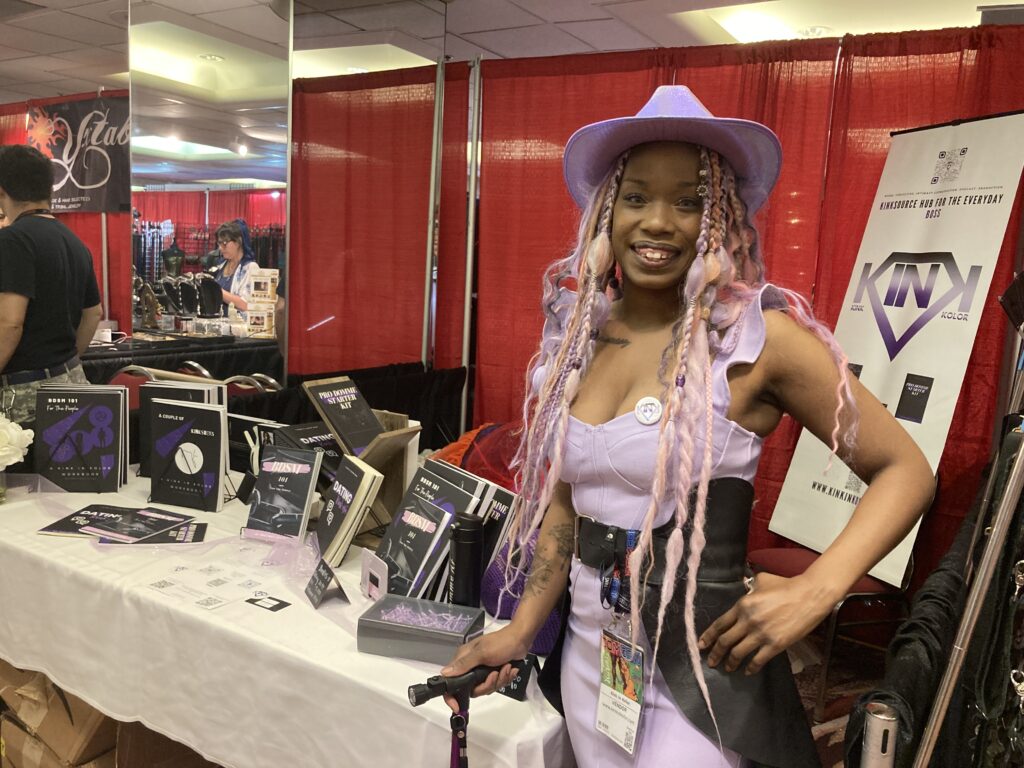
In your experience, how has the intersection of art and advocacy shaped the communities you’re passionate about?
It has allowed people to breathe, to take up space, to advocate for themselves, to change how they date, to feel free to ask questions, and to further their own education. Our Immersive Experience “Sensations” really resonated with those who were able to grab a ticket. The community showed up and were not disappointed. The audience saw themselves in seeing the diversity and had a better understanding of the lifestyles we advocate for. I still get texts asking about the next one and people sharing how it impacted them in a personal way. Our cast and crew really gave it their all and the energy was palpable. I don’t think any of us were truly prepared for how it would be received and it was awesome.
What role does mental health play in your work, and how do you prioritize your well-being while juggling multiple responsibilities?
I see a therapist regularly, give myself breaks, do things that make me happy and have my friends keep me accountable when I take on too much. It’s HARD and I’m only one person, but after a major health scare this summer it reinforced the idea of slowing down and allowing my community to show up for me in ways I tried to hide.
How do you stay motivated and inspired, especially when faced with obstacles that can be both personally and professionally taxing?
It’s hard and due to some of my chronic illnesses and disability challenges it can be even harder. I have to take it one day at a time. It doesn’t mean that I don’t cry or get frustrated or exhausted but my PEOPLE GOT ME! I can be stubborn and fiercely independent so now they recognize it and call me out on it when they know I need rest. They’ll take things off my plate without asking and will just sit and watch movies with me when I can barely move a muscle. When I see that it’s inspirational. When I see other organizers achieving success it brings me joy. When I get a message or a dm about how our company helped it reinforces the idea that it’s needed. I think the most inspirational though is when people, or companies…,etc try to silence us and see our community fight back in the ways only we can.
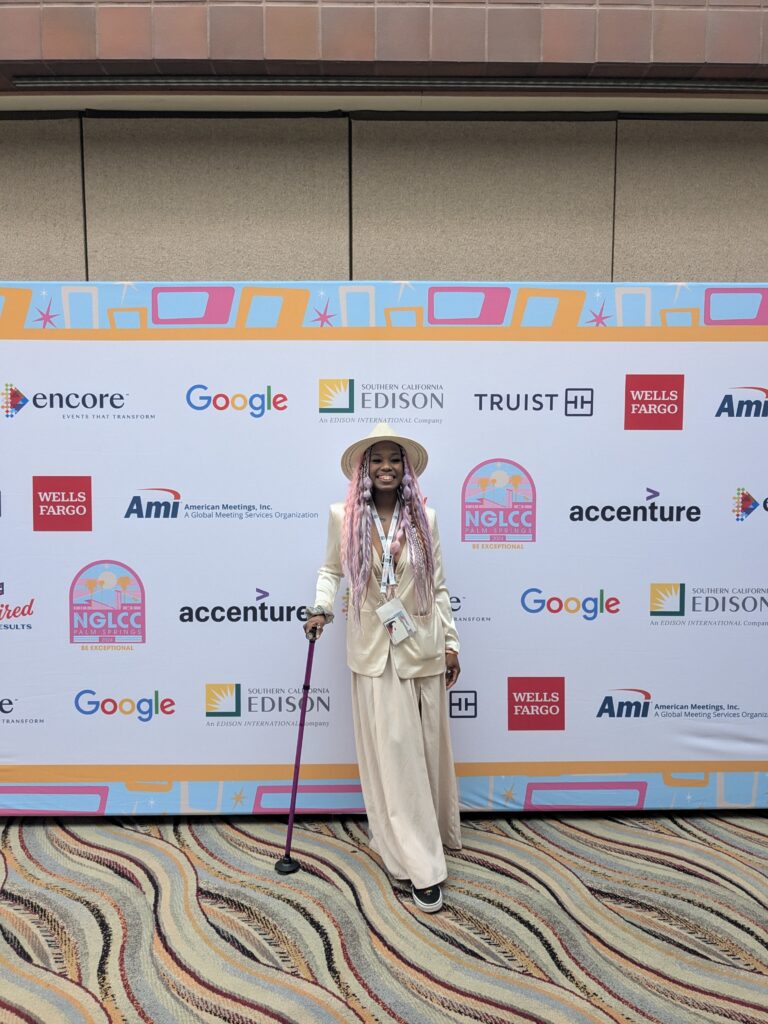
Could you describe a moment when you felt Kink In Kolor made a significant impact on someone or a community?
I feel after every event. I feel it after conversations I have with others who’ve been inspired by our work. I especially feel it when folx catch me in the wild and recognize the brand. I probably feel it the MOST when someone comes up to me by way of recommendation and we get locked in.
What advice would you give to other women, especially those from underrepresented backgrounds, who want to start their own creative or advocacy-driven ventures?
Have a strong community and be ready for the long haul. Take breaks when needed and get everything in writing! Also, It will take a village, so find people you can trust and even though it will be hard it will also be so worth it.
How do you handle self-doubt or criticism, particularly when working in industries where your voice may be underrepresented?
I don’t give it the opportunity to settle. I know my value and I am confident in who I am. I have done the work and have the experience to back it up. When I don’t know something, I ask. When I feel like the response isn’t what I want from a particular company, creative etc. it sucks but it wasn’t meant to be and that’s ok. I can only control what I can control and that’s me, my mind, and my peace. People will already criticize me or doubt me, I don’t need to join them. It’s much easier to keep pushing and take constructive criticism when it’s given.
What has been the most rewarding part of your journey with Kink In Kolor so far?
The people I’ve met and how much I’ve been able to accomplish despite my limitations. I’ve grown so much as a person and have been impacted in unimaginable ways by those in the trenches with me and those taking up the proverbial torches in their own lanes to make the road wider for us all.
How do you envision the future of Kink In Kolor? What are your hopes for its growth and impact?
I envision a place where we continually change the narrative on how different types of love is seen, different types of people are seen, different types of activities are seen, and expansion that reaches a worldwide audience. We need to see ourselves, outside of ourselves. I hope to see the work that we’re doing amplified. I hope to see a shift in how we’re viewed. I hope to see folx being confident in their own skin, living an authentic life that truly makes them happy.
Can you share some of the strategies you’ve used to create inclusive and transformative experiences in the alt subculture spaces?
I am constantly learning. When I’m not hosting an event or working on some of the things we have in the pipeline, I’m taking classes on various topics, showing up for other people who are doing similar work, networking, advocating and constantly taking it all in. When I am doing an event, I take necessary precautions so that people can show up fully and fearlessly. Calling out what isn’t serving us and doing our best to understand the things we don’t know. I learn something new everytime and remind myself that I am human and so are the people around me. Take a breath, acknowledge what’s happening and move accordingly. 15. Lastly, what message would you like to share with other neurodivergent, queer, or marginalized individuals who are looking to make their mark in creative industries? Get involved with your local community services, chambers of commerce, and other organizations that help you understand the business side of it and to help you build community within your community. YOU GOT THIS! You are seen, your voice is loud and you will find your place even if it takes longer than you want it to.


